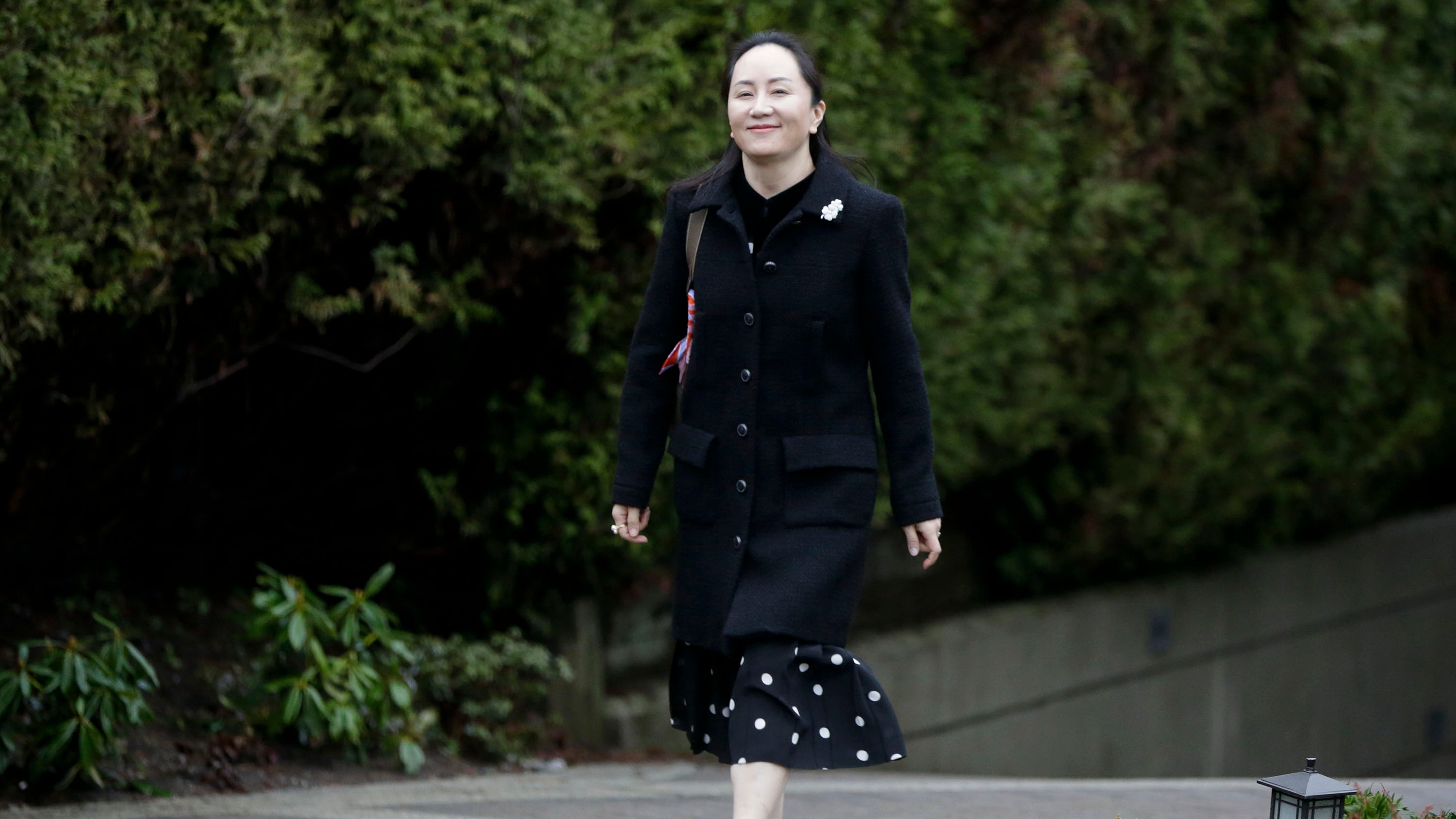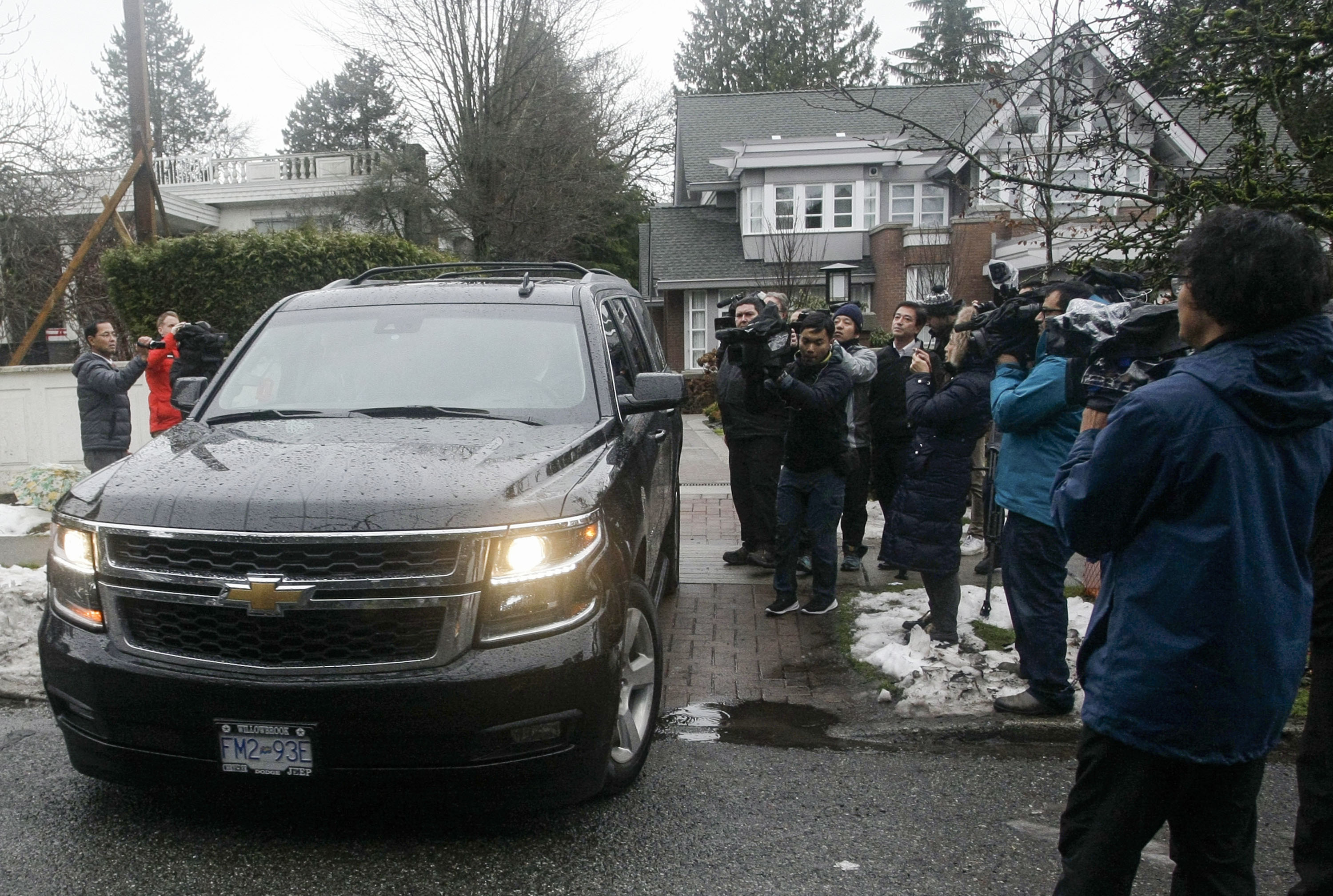
Huawei Chief Financial Officer Meng Wanzhou leaves her residence for the extradition hearing in Vancouver, Canada, January 20, 2020. /Xinhua
Huawei Chief Financial Officer Meng Wanzhou leaves her residence for the extradition hearing in Vancouver, Canada, January 20, 2020. /Xinhua
Editor's note: Dr. John Gong is a professor at the University of International Business and Economics and a research fellow at the Academy of China Open Economy Studies at UIBE. The article reflects the author's views, and not necessarily those of CGTN.
It has been a year and half since Huawei's Chief Financial Officer Meng Wanzhou was detained in Vancouver at an extradition request from the U.S. government. Relevant to the Canadian law, the government prosecutor, acting on behalf of the U.S. side, has built the case around a PPT presentation given by Meng to an HSBC executive to describe Huawei's relationship with Skycom.
However, Meng's lawyers presented new arguments in court on June 15 that the case record document presented by the requesting state, the U.S., is a total misrepresentation of facts.
Allegedly involved in business dealings in Iran, Skycom was a Huawei subsidiary. However, it was later sold to a Mauritius company by the name of Canicula after the U.S. imposed sanctions on Iran. The U.S. Justice Department believes Huawei sold Skycom to itself for several reasons, thus violating its sanction law against Iran. But notwithstanding the validity of this story, the U.S. government's extradition case against Meng is that her presentation to that HSBC executive is a fraud in depicting Huawei's true relationship with Skycom. It is using this venue because the Iran sanction law is neither recognized nor participated by the Canadian government, and thus cannot serve as a basis for extraditing her to the U.S. from Canada.
Nevertheless it appears at this point the prosecuting side's misrepresentation aka fraud argument is in limbo in itself because of its own misrepresentation. The court document disclosed shows at least two aspects of misrepresentation. First, it omitted to include reference to critical disclosures that Meng made in the PPT regarding Huawei's lawful ongoing business operations in Iran and Huawei's business partner relationship with Skycom, which at the time worked with Huawei in sales and services in Iran. In other words, HSBC should be fairly well informed of Huawei's business dealings in Iran, and thus the case of it being misled in a fraud cannot be credibly established.

Journalists wait outside the residence of China's Huawei Chief Financial Officer Meng Wanzhou in Vancouver, Canada, January 20, 2020. /Xinhua
Journalists wait outside the residence of China's Huawei Chief Financial Officer Meng Wanzhou in Vancouver, Canada, January 20, 2020. /Xinhua
Huawei's lawyers made some pretty harsh statements against the U.S. government on this point:
"As the PPT is the foundation for the fraud allegation against Ms. Meng, such omissions constitute, at best, gross negligence by the Requesting State (the U.S.) in ensuring that the certified ROC/SROC accurately summarized the relevant facts and evidence available for trial and, at worst, an intentional effort to mislead."
Another aspect of misrepresentation in the requesting state's submitted document is with respect to describing HSBC's knowledge of Huawei's dealings with Skycom as being restricted to only "junior" employees. The defense side believes this could not possibly be true given Huawei's sheer size and its importance to HSBC's business as a client. So some "senior" executives must have known that something is going on. By exposing this point of misrepresentation, the prosecuting side's narrative that HSBC somehow discovered something fishy going on with respect to Huawei and Skycom after a thorough investigation could be in shambles. More likely, HSBC conducted a total sellout by reporting on Huawei to the U.S. as part of remedial measures to satisfy the U.S. Justice Department's money-laundering case penalty against it in 2012, in which HSBC agreed to pay a fine of 1.9 billion U.S. dollars.
In any case, the U.S. government's case against Meng is one small front of a much broader political campaign to totally destroy Huawei. This is more about political persecution of a Chinese company as opposed to seeking real legal justice.
In fact, a report by Canadian Security Intelligence Service (CSIS) included in Canadian federal court documents shows that "advanced communication to the CSIS came from the FBI" before Meng was detained at Vancouver International Airport by Canada Border Services officers. The report also said that "the FBI will not be present in an effort to avoid the perception of influence.”
If the extradition case is built on such a questionable foundation, then this Canadian court's future decision would be a litmus test of whether rule of law will indeed prevail in Canada.
(If you want to contribute and have specific expertise, please contact us at opinions@cgtn.com.)